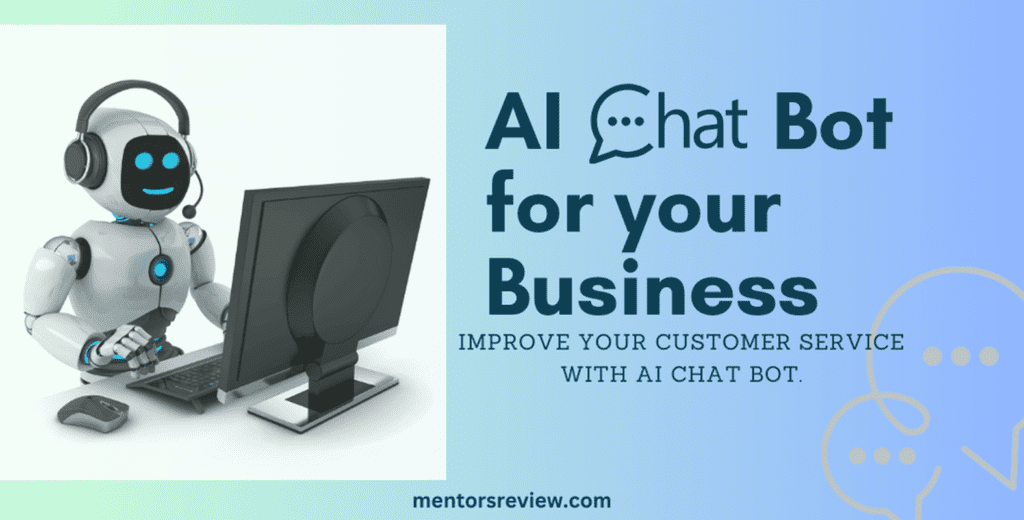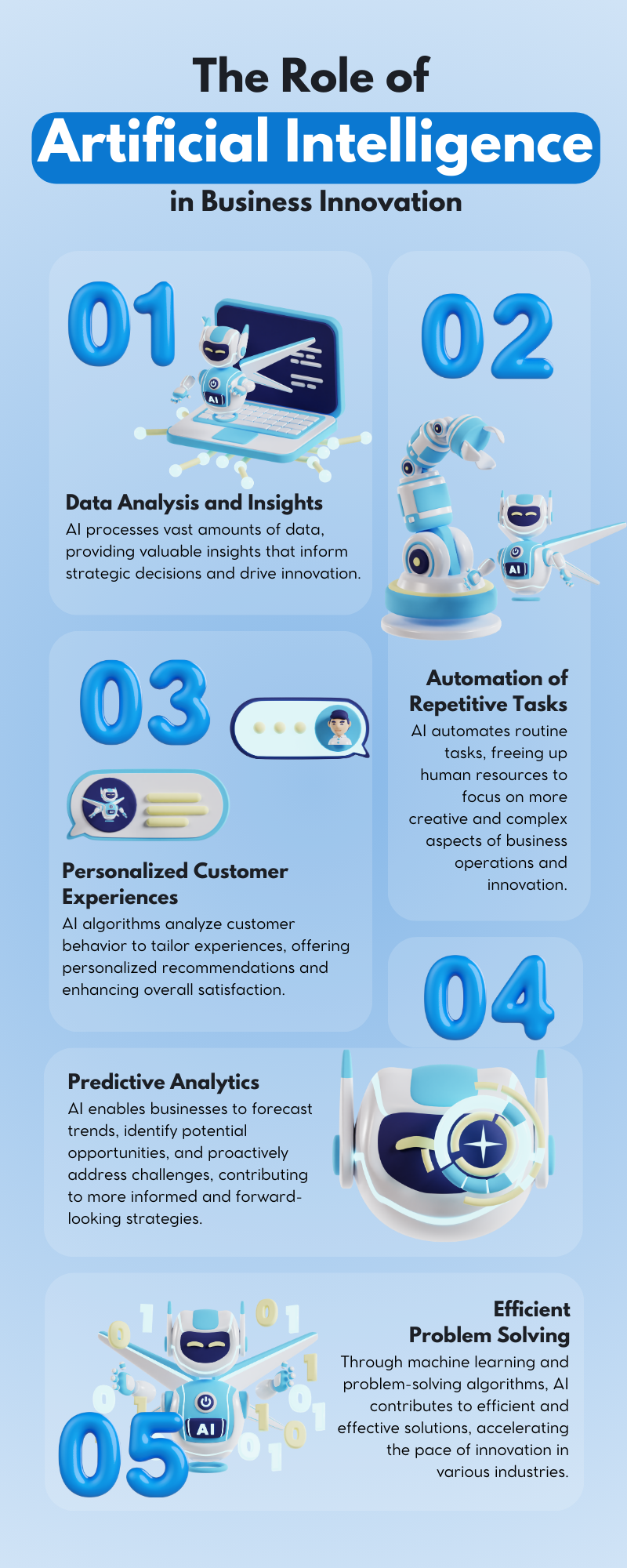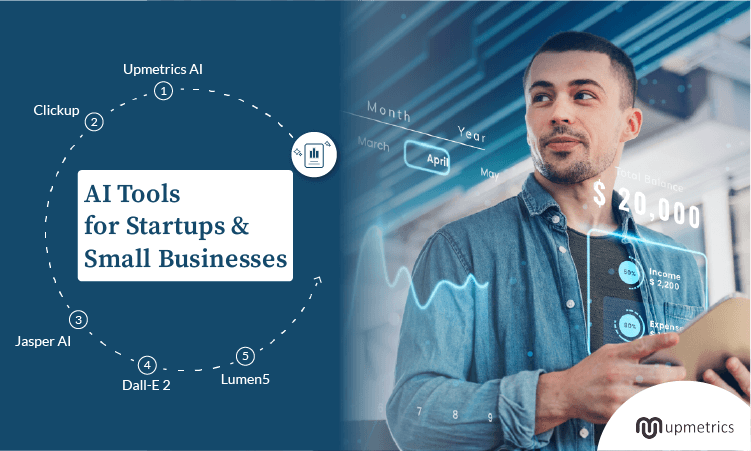AI tools can revolutionize small businesses. They enhance efficiency, reduce costs, and improve customer engagement.
Small businesses often face challenges like limited resources and tight budgets. AI tools offer solutions that streamline operations and boost productivity. From chatbots handling customer service to analytics tools providing valuable insights, AI can automate repetitive tasks and free up time for strategic initiatives.
These tools are accessible and easy to integrate, making them ideal for businesses of all sizes. Embracing AI technology can lead to better decision-making, higher customer satisfaction, and ultimately, growth. By adopting AI, small businesses can stay competitive in an increasingly digital marketplace.

Introduction To AI Tools
Artificial Intelligence (AI) tools for small businesses are changing the way companies work and grow in today’s digital world. These tools can make everyday tasks easier, improve customer service, and boost productivity. AI tools help small businesses save time and money. AI-driven tools can streamline business processes, automate marketing, and enhance customer engagement. This helps businesses stay competitive. In this article, we will look at the best AI tools for small businesses. We’ll explain why adopting AI is key to growing your business and finding success.
What Are AI Tools?
AI tools are software applications that use artificial intelligence. They perform tasks that usually require human intelligence. Tasks like data analysis, language processing, and decision-making.
- Data Analysis: AI tools can analyze large sets of data quickly.
- Language Processing: They can understand and generate human language.
- Decision-Making: AI can help in making smart business decisions.
These tools use machine learning, neural networks, and natural language processing. They learn and improve over time.
Importance For Small Businesses
AI tools can be game-changers for small businesses. They offer several benefits:
- Cost-Effective: AI tools can reduce operational costs.
- Time-Saving: They automate repetitive tasks, saving time.
- Enhanced Customer Experience: AI chatbots provide 24/7 customer support.
- Increased Productivity: AI tools can help in managing tasks efficiently.
For example, AI-driven marketing tools can analyze customer behavior. They provide insights that help in creating targeted marketing campaigns.
Another example is AI accounting software. It can manage invoices, track expenses, and generate financial reports.
By adopting AI tools, small businesses can stay competitive in the market. They can focus more on growth and innovation.
Automating Routine Tasks
Small businesses often struggle with managing routine tasks. These tasks can take up valuable time. Automating these tasks with AI tools can be a game-changer. This allows more time for core business activities. Let’s explore how AI can help automate routine tasks.
Email Management
Email management can be a daunting task for small businesses. AI tools can help sort and prioritize emails. These tools can also automate responses to common queries. This reduces the burden of sifting through hundreds of emails.
- Sort and prioritize emails
- Automate responses to common queries
- Reduce email management time
For example, AI can flag important emails. It can also filter out spam or promotional messages. This ensures you focus only on critical emails.
Scheduling And Calendar
Managing schedules can be a time-consuming task. AI tools can automate appointment bookings and reminders. This ensures you never miss a meeting or deadline.
- Automate appointment bookings
- Send reminders for meetings and deadlines
- Sync calendars for better time management
AI can suggest the best meeting times based on availability. It can sync calendars across multiple platforms. This ensures you have a cohesive schedule.
| Task | AI Tool Benefit |
|---|---|
| Email Management | Sort, prioritize, and automate responses |
| Scheduling | Automate bookings, send reminders, sync calendars |
Enhancing Customer Service
Small businesses can greatly benefit from AI tools to enhance customer service. These tools can streamline processes and provide better support for customers. Here, we will explore two main areas: Chatbots and Personalized Support.
Chatbots

Chatbots are AI-powered tools that can handle customer queries. They are available 24/7 and can provide instant responses. This reduces wait times and improves customer satisfaction. Chatbots can also handle multiple conversations at once, increasing efficiency.
Below are some benefits of using chatbots:
- Cost-effective: Reduce the need for a large support team.
- Instant responses: Improve customer experience with quick replies.
- Availability: Provide support round-the-clock.
Chatbots can also collect data on customer interactions. This data helps businesses understand customer needs and improve services.
Personalized Support
AI tools can offer personalized support by analyzing customer data. This helps in tailoring responses to individual needs. Personalized support makes customers feel valued and understood.
Some key benefits of personalized support include:
- Increased loyalty: Customers are more likely to return.
- Better engagement: Personalized messages can improve interaction.
- Higher satisfaction: Tailored responses meet specific needs.
Businesses can use AI to recommend products based on past purchases. This can increase sales and customer satisfaction.
Implementing AI tools for customer service can transform small businesses. It enhances efficiency, reduces costs, and improves customer experience.
AI Tools for Small Businesses to Improve Marketing Strategies
Small businesses need effective marketing strategies to thrive. AI tools can help improve these strategies significantly. By automating tasks and targeting ads, businesses can save time and increase reach.
Social Media Automation
AI tools automate social media tasks. These tasks include posting content and responding to comments. This saves time and ensures consistency.
Automated tools can schedule posts. This ensures your audience sees content at peak times. Consistent posting helps grow your audience.
AI can analyze engagement data. It suggests the best times to post. It also recommends content types that get more interaction.
- Automated posting
- Engagement analysis
- Content recommendations
Targeted Advertising
AI tools create targeted ads. They use data from user behavior and preferences. This ensures ads reach the right audience.
AI can optimize ad budgets. It allocates funds to ads that perform best. This ensures better ROI.
AI tools can also A/B test ads. This finds the most effective ad versions. It helps in improving ad performance over time.
| Feature | Benefit |
|---|---|
| Targeted Ads | Reach the right audience |
| Budget Optimization | Better ROI |
| A/B Testing | Improved ad performance |
Using AI in marketing strategies saves time. It also boosts engagement and improves ad performance. Small businesses can benefit greatly from these tools.
How AI Tools Help Small Businesses Streamline Operations
Small businesses can use AI tools to streamline their operations. These tools help in various areas such as inventory management and supply chain optimization. By automating tasks, AI saves time and reduces errors.
Inventory Management
AI inventory management systems enable small businesses to optimize stock levels, predict demand, and reduce operational costs. Using AI, businesses can:
- Predict demand to avoid stockouts and overstocking
- Automate reordering processes
- Track stock levels in real-time
Here is a comparison of manual vs AI-assisted inventory management:
| Manual Management | AI-Assisted Management |
|---|---|
| Prone to human error | Minimizes errors |
| Time-consuming | Saves time |
| Reactive approach | Proactive approach |
Supply Chain Optimization
AI tools can optimize supply chain operations. Some benefits include:
- Improved forecasting of supply and demand
- Enhanced supplier selection and management
- Real-time tracking of shipments
- Cost reduction through efficient routing
AI can analyze vast amounts of data quickly. This helps in making better decisions. It also ensures timely deliveries, keeping customers happy.
Boosting Sales with AI Tools for Small Businesses
Small businesses aim to boost their sales and grow. AI tools help achieve this goal quickly and efficiently. With AI, businesses can predict trends, manage customer relations, and personalize experiences.
Sales Forecasting
AI tools predict future sales using historical data. This helps businesses plan better. Forecasting tools analyze trends and patterns. They provide insights into upcoming demand.
Benefits of Sales Forecasting:
- Improves inventory management
- Reduces overstock and stockouts
- Enhances budgeting and planning
Popular AI Sales Forecasting Tools:
| Tool | Features | Pricing |
|---|---|---|
| HubSpot | Customizable forecasts, detailed reports | Free & Paid Plans |
| Pipedrive | Visual sales pipeline, AI-powered insights | Starts at $15/month |
Customer Relationship Management
AI-powered CRM tools help manage customer interactions. They store customer data and track communications. Businesses can tailor their marketing efforts based on this data.
Benefits of AI-powered CRM:
- Improves customer service
- Increases customer retention
- Enhances marketing campaigns
Top AI CRM Tools:
- Salesforce: Offers AI-driven insights and automation.
- Zoho CRM: Provides sales automation and AI analytics.
Using AI tools, small businesses can streamline processes. This leads to increased sales and growth.
Data Analytics And Insights
Small businesses can benefit greatly from AI tools for data analytics and insights. These tools help track business performance and analyze customer behavior. This information is crucial for making informed decisions and improving operations.
Tracking Business Performance
Tracking business performance is essential for growth. AI tools can help with this. They provide detailed reports and real-time data.
Key metrics to track include:
- Sales figures
- Customer acquisition cost
- Revenue growth
- Profit margins
AI tools can also generate easy-to-read dashboards. These dashboards help visualize the data. Business owners can see trends and patterns quickly. This makes it easier to take action.
Customer Behavior Analysis
Understanding customer behavior is key to success. AI tools can analyze customer data effectively. This helps businesses understand what their customers want.
Important aspects to analyze include:
- Purchase history
- Browsing patterns
- Feedback and reviews
- Engagement on social media
Customer segmentation is another benefit. AI tools can group customers based on behavior. This allows for personalized marketing strategies. Businesses can offer better products and services.
Here is a comparison of AI tools for small businesses:
| AI Tool | Features | Price |
|---|---|---|
| Tool A | Real-time data, Custom reports, Dashboards | $50/month |
| Tool B | Customer segmentation, Predictive analytics | $75/month |
| Tool C | Social media analysis, Feedback analysis | $100/month |
Choosing the right AI tool can transform small businesses. By leveraging data analytics and insights, they can make smarter decisions. This leads to growth and success.
Best Affordable AI Tools to Streamline Small Business Operations
Small businesses often operate on tight budgets. Finding cost-effective solutions is crucial for success. AI tools offer affordable, scalable options that can enhance efficiency. Below, we explore some practical and budget-friendly AI tools.
Affordable Tools
Explore the best affordable AI tools for small businesses, from AI-powered chatbots for customer service to budget-friendly CRM systems and email marketing solutions. Here are some options:
- Chatbots: Automate customer service with tools like Chatfuel or ManyChat. They are affordable and improve customer interaction.
- Email Marketing: Tools like Mailchimp use AI to optimize email campaigns. They are cost-effective and boost engagement.
- Social Media Management: Tools like Buffer and Hootsuite use AI to schedule posts. They save time and improve social media presence.
- Accounting: Affordable AI tools like QuickBooks and FreshBooks make financial management easier for small businesses, with features like expense tracking, invoicing, and tax calculations
Scalability
AI tools grow with your business. They adapt to increasing demands and complexities.
Here are some examples:
- CRM Systems: Tools like HubSpot and Zoho CRM scale as your customer base grows.
- Project Management: AI tools like Asana and Trello can manage larger projects efficiently.
- Data Analysis: Google Analytics and similar tools scale with your website traffic.
- Inventory Management: AI solutions like TradeGecko grow with your inventory needs.
These tools are designed to fit any business size. They ensure smooth operations as your business expands. Investing in scalable AI tools today can save money and time in the future.
Challenges and Considerations- AI tools for small businesses
Small businesses face unique challenges when adopting AI tools. Understanding these challenges helps in making informed decisions. Here are some key considerations:
Integration Issues
Integrating AI tools into existing systems can be tricky. Small businesses often use multiple software solutions. Making these tools work together can be complex.
Many AI tools require specific technical skills. Small business owners may lack these skills. Hiring experts can be expensive.
| Challenge | Description |
|---|---|
| Technical Skills | Requires expertise to integrate AI tools. |
| Compatibility | Ensuring AI tools work with existing software. |
| Cost | Hiring experts can be costly. |
Data Privacy Concerns
Data privacy is a significant concern. Small businesses collect a lot of customer data. Protecting this data is crucial.
AI tools often require access to sensitive information. This can pose privacy risks. Ensuring compliance with regulations is essential.
- Customer Data: Protecting customer information is critical.
- Sensitive Information: AI tools need access to this data.
- Regulations: Compliance with laws like GDPR is necessary.
Small businesses must have strong data security measures. This helps in preventing data breaches.

Future Trends
The world of AI is changing fast. Small businesses need to stay updated. Future trends in AI can help you grow. Let’s dive into some key areas.
Ai Developments
AI is getting smarter. New tools come out every day. They can help small businesses in many ways.
- Chatbots: They can talk to customers 24/7.
- Predictive Analytics: They can forecast sales and trends.
- Personalized Marketing: They can create custom ads for each user.
These tools save time and money. They make work easier.
Adapting To Changes
Small businesses must adapt quickly. New AI tools require learning.
- Training: Employees must learn new skills.
- Integration: AI tools must fit with current systems.
- Monitoring: Keep track of AI performance and results.
Adaptation is key to success. Stay flexible and open to change.
Frequently Asked Questions
What Are The Best Ai Tools For Small Businesses?
The best AI tools for small businesses include ChatGPT for customer support, Hootsuite for social media, and QuickBooks for accounting.
How Can AI Help Small Businesses Grow?
AI can automate tasks, improve customer service, and provide data insights, helping small businesses save time and grow efficiently.
Is AI Expensive For Small Businesses?
Many AI tools are affordable and offer scalable pricing plans, making them accessible for small businesses with limited budgets.
Can Ai Improve Customer Service?
AI chatbots and virtual assistants can handle customer inquiries 24/7, providing quick and efficient customer service.
What Ai Tools Improve Marketing Efforts?
AI tools like HubSpot and Mailchimp enhance marketing by automating campaigns, analyzing data, and targeting the right audience.
Do Ai Tools Require Technical Knowledge?
Many AI tools are user-friendly and designed for non-technical users, making them easy to implement and use effectively.
Conclusion
Embracing AI tools can significantly boost your small business efficiency. They streamline operations and enhance customer experiences. Start integrating AI today and witness remarkable growth. Stay ahead of competitors by leveraging advanced technology. Your business deserves the best tools for success.
AI is not just the future; it’s your present opportunity.


![VideoCreator Review 👉Complete Demo And 🎁Bonuses Worth 💲4947🎁 For👉 [Video Creator Review]👇](https://mentorsreview.com/wp-content/uploads/2026/01/videocreator-review-complete-demo-and-bonuses-worth-4947-for-video-creator-review-150x150.jpg)
![AvatarBuilder Review 👉Demo And 🎁Bonuses🎁 Worth 💲2997 For👉 [Avatar Builder Review]👇](https://mentorsreview.com/wp-content/uploads/2026/01/avatarbuilder-review-demo-and-bonuses-worth-2997-for-avatar-builder-review-150x150.jpg)


